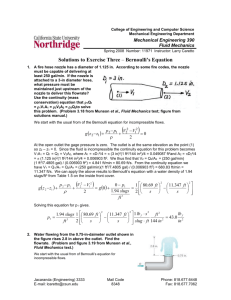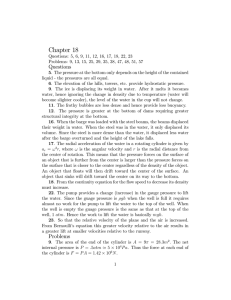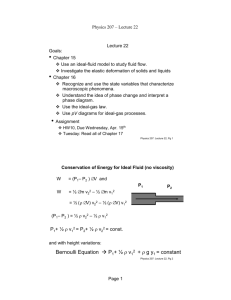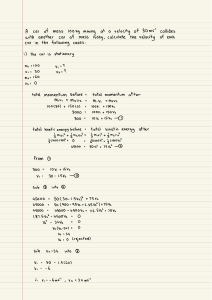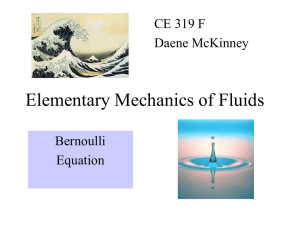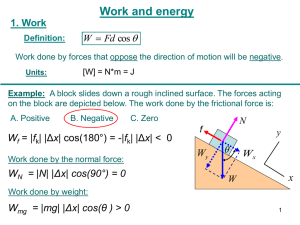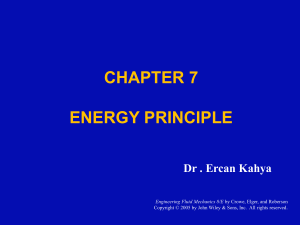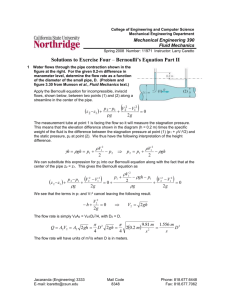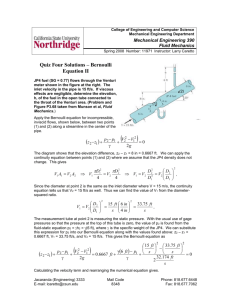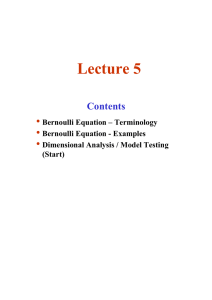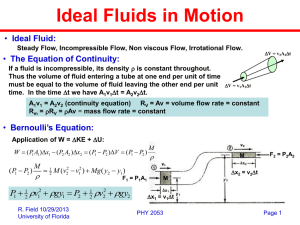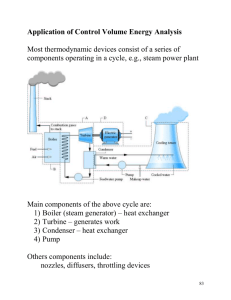Unit 6: March 11
advertisement
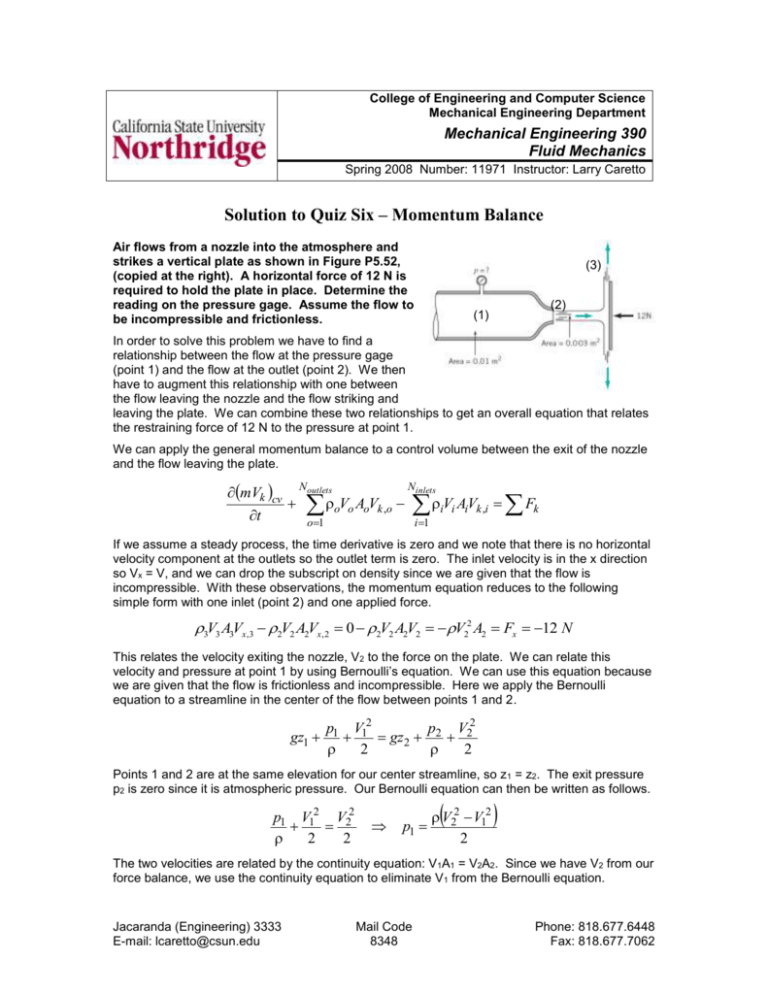
College of Engineering and Computer Science Mechanical Engineering Department Mechanical Engineering 390 Fluid Mechanics Spring 2008 Number: 11971 Instructor: Larry Caretto Solution to Quiz Six – Momentum Balance Air flows from a nozzle into the atmosphere and strikes a vertical plate as shown in Figure P5.52, (copied at the right). A horizontal force of 12 N is required to hold the plate in place. Determine the reading on the pressure gage. Assume the flow to be incompressible and frictionless. (3) (2) (1) In order to solve this problem we have to find a relationship between the flow at the pressure gage (point 1) and the flow at the outlet (point 2). We then have to augment this relationship with one between the flow leaving the nozzle and the flow striking and leaving the plate. We can combine these two relationships to get an overall equation that relates the restraining force of 12 N to the pressure at point 1. We can apply the general momentum balance to a control volume between the exit of the nozzle and the flow leaving the plate. mVk cv t Noutlets Ninlets o1 i 1 oVo AoVk ,o iVi AiVk ,i Fk If we assume a steady process, the time derivative is zero and we note that there is no horizontal velocity component at the outlets so the outlet term is zero. The inlet velocity is in the x direction so Vx = V, and we can drop the subscript on density since we are given that the flow is incompressible. With these observations, the momentum equation reduces to the following simple form with one inlet (point 2) and one applied force. 3V3 A3Vx,3 2V2 A2Vx, 2 0 2V2 A2V2 V22 A2 Fx 12 N This relates the velocity exiting the nozzle, V2 to the force on the plate. We can relate this velocity and pressure at point 1 by using Bernoulli’s equation. We can use this equation because we are given that the flow is frictionless and incompressible. Here we apply the Bernoulli equation to a streamline in the center of the flow between points 1 and 2. gz1 p1 V12 p V2 gz2 2 2 2 2 Points 1 and 2 are at the same elevation for our center streamline, so z1 = z2. The exit pressure p2 is zero since it is atmospheric pressure. Our Bernoulli equation can then be written as follows. p1 V12 V22 2 2 p1 V22 V12 2 The two velocities are related by the continuity equation: V1A1 = V2A2. Since we have V2 from our force balance, we use the continuity equation to eliminate V1 from the Bernoulli equation. Jacaranda (Engineering) 3333 E-mail: lcaretto@csun.edu Mail Code 8348 Phone: 818.677.6448 Fax: 818.677.7062 Quiz six solution ME 390, L. S. Caretto, Spring 2008 Page 2 2 V22 V12 V22 V22 A22 A12 V22 A2 p1 1 2 2 2 A1 We can now apply the equation that A2V22 = –Fx from the force balance on the vertical plate to replace V22 in the equation above by –Fx/A2. V22 A 1 2 p1 2 A1 2 F x 2 A2 A 2 12 N 1 2 2 0.003 m2 A1 p1 = 1820 N/m2 = 1820 Pa 0.003 m2 2 1 2 0.01 m
